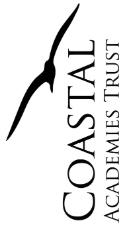
| Globally Diverse | Ambitious for the Future | Inquisitive Learners |
|---|---|---|
|
We explicitly study the following:
|
|
|
At key stage 3, food technology is part of our design course rotation. Students undertake a project each term. Following a brief, students research, develop and make products that are creative and unique.The projects cover relevant, current topics which inform students of issues which are pertinent to their lifestyle now and in the future, such as healthy eating, the effects of food choices on the environment and how culture and religion impact our diets. Students develop skills in decision making, teamwork and questioning. Literacy and numeracy skills are mastered through research, weighing ingredients, budgeting, reading recipes and following design briefs. Students gain knowledge about nutrition and practical culinary skills for later life through the curriculum and the additional opportunities afforded to them, such as, the Duke of Edinburgh’s Award, baking competitions and catering for small and large scale events.
At key stage 4, students are able to choose to study the OCR GCSE Food and Nutrition course. The curriculum is wide ranging, covering topics from nutrition to food processing, food science including biological food processes and their application and food provenance. By studying this course students examine, in greater depth, the food industry, food production processes and the environmental impact associated with these, including their own carbon footprint. Students examine global issues such as Fairtrade, ensuring they have a good understanding of how the food industry can impact on the livelihoods of growers and producers at a local, national and international scale. The course looks in depth at the science of food nutrition and the impact this has on specific health conditions. Students master and develop practical cooking skills and research in depth nutritional knowledge.
Students work in a variety of ways to develop their literacy, oracy and numeracy skills, including; through independent research, presentations, group work, experimentation and recipe development. By making increasingly skilled dishes, students gain confidence in the kitchen, raising their aspirations of the dishes that they are able to produce. The curriculum demands students share both their successes and failures which develops confidence and resilience.
Students explore and debate moral and ethical topics such as, fishing and farming methods, GM foods and organic farming. Students have to conduct research and are exposed to a range of differing viewpoints ensuring they are fully informed of these issues. Respect and consideration of cultures and differing viewpoints is an integral part of the course. The skill and knowledge the students develop as a result of studying this course are transferable for the IB learner profile and core part of the IBCP.